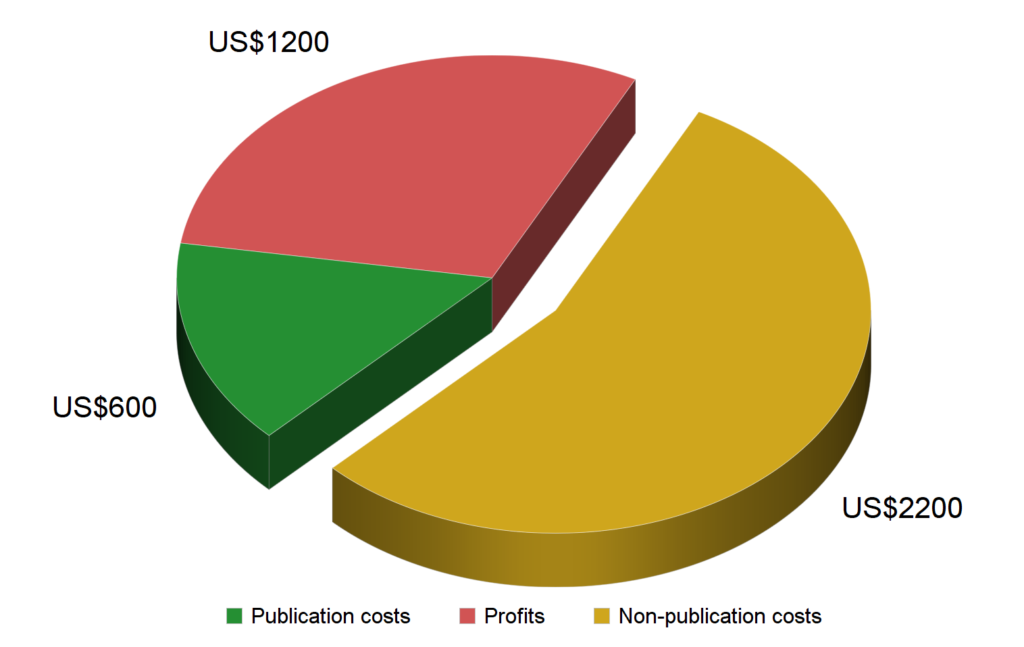There are those who demand journal peer-review be paid extra on top of academic salaries. Let’s have a look at the financials of that proposal.
The article linked above confirms common rates of academic consulting fees, i.e., anything between US$100 per hour for graduate students and US$350 per hour for faculty. Taking a conservative US$200 as an easy, lower-bound estimate for, say, a post-doc hour seems to cover most cases. Clearly, many academics, especially from high-income countries, will refuse to work for such a low payment. In order to mitigate against potential exploitative developments, US$200 appears more like a bare minimum.
How long does peer-review take? A recent article examined this question in great detail and concluded that one round of peer-review takes an average of about 6h and that an average published article requires about three such reviews, i.e., 18h of peer-review per published article, or an additional cost of US$3600 per published article, if this peer-review were adequately paid.
We also know that pure publication costs of an average article are about US$600 and non-publication costs accrue to about US$2200:

Taking all of the above together, the total cost of an average peer-reviewed journal article would increase from about US$2,800 now to about US$6,400 with adequately paid peer-review. Add to that a conservative profit margin in this sector of around 30% and the average price for a peer-reviewed journal article would come to US$8,320.
Compared to now, paying peer-reviewers adequately would stand to more than double the price of an average article from ~4k to >8k and increase publisher profits from now 1.2k to nearly 2k per article. Those are the figures one needs to take into account in this discussion.













thanks for sharing
Comments are closed.